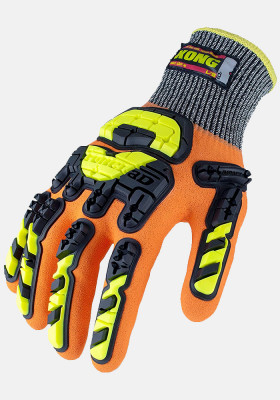Introduction
In the dynamic and fast-paced industrial landscape of the United Arab Emirates (UAE), prioritizing workplace safety is paramount. One essential aspect of ensuring the well-being of workers is the use of appropriate personal protective equipment (PPE), including safety gloves. Safety gloves UAE play a crucial role in safeguarding workers from various occupational hazards, and their proper selection and usage are vital for maintaining a secure work environment.
Types of Safety Gloves
The diverse industries in the UAE demand a range of safety gloves designed to protect against specific hazards. Some common types of safety gloves include:
- Cut-Resistant Gloves: Ideal for industries involving sharp objects or materials, such as metalworking or construction. These gloves are made from materials like Kevlar or stainless steel mesh to prevent cuts and lacerations.
- Chemical-Resistant Gloves: Essential in environments where workers may come into contact with harmful chemicals. These gloves are typically made from materials like neoprene, nitrile, or PVC to provide a barrier against chemical substances.
- Heat-Resistant Gloves: Suitable for industries where workers are exposed to high temperatures, such as welding or manufacturing. Materials like leather, Kevlar, or aluminized fabric are used to create gloves that can withstand heat and protect the hands.
- Electrical Gloves: Crucial for workers in the electrical industry to protect against electric shock. These gloves are often made of rubber or other insulating materials.
- General-Purpose Work Gloves: Designed for various tasks, these gloves provide basic protection against abrasions, punctures, and moderate impacts. They are commonly used in construction, maintenance, and general labor.
Regulations and Standards
In the UAE, safety glove standards are established to ensure the quality and effectiveness of PPE. Compliance with international standards, such as those set by the International Organization for Standardization (ISO) and the American National Standards Institute (ANSI), is essential. Employers and workers alike should be aware of the specific standards relevant to their industry to guarantee the proper use and maintenance of safety gloves.
Benefits of Safety Gloves
- Injury Prevention: Safety gloves act as a barrier between the hands and potential hazards, reducing the risk of injuries such as cuts, burns, and chemical exposure.
- Enhanced Productivity: When workers feel secure in their environment, they can focus more on their tasks, leading to increased productivity.
- Compliance with Regulations: Adhering to safety standards ensures compliance with local and international regulations, preventing legal issues and penalties.
- Cost Savings: While investing in quality safety gloves incurs an initial cost, it is a prudent investment that can lead to significant cost savings by preventing workplace accidents and injuries.
Conclusion
In the UAE, where industries are thriving, prioritizing workplace safety is not just a legal requirement but a moral obligation. Safety gloves UAE are an integral component of PPE that significantly contribute to the protection and well-being of workers across various sectors. By understanding the specific hazards present in their work environments and selecting the appropriate safety gloves, employers can create a safer workplace for their employees, fostering a culture of responsibility and care.

